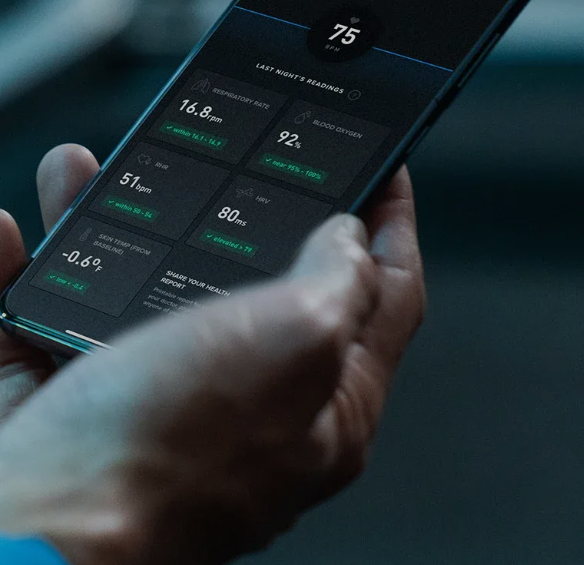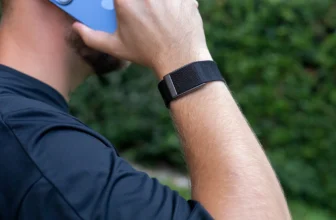At what level do wellness insights grow to be medical gadgets, and who will get to resolve? Wearable big Whoop says it’s combating for entry to non-public well being knowledge. The FDA says it’s implementing the regulation
A regulatory conflict between Whoop and the U.S. Meals and Drug Administration may power a reckoning over how far wellness tech can go earlier than crossing into medical territory.
The wearable firm, whose newest global ambassador and investor is soccer star Cristiano Ronaldo, is pushing again in opposition to a warning from the FDA over its blood strain insights instrument. On Monday, the company issued a warning letter to the Boston-based firm, asserting that its Blood Pressure Insights (BPI) feature can’t be legally marketed with out regulatory clearance. The company mentioned BPI qualifies as a medical system below federal regulation and lacks required premarket authorization.
Whoop founder and CEO Ahmed responded in a pointed LinkedIn post Wednesday, calling the FDA’s transfer “misguided” and warning that it undermines each innovation and client entry to non-public well being knowledge.

“We’re not backing down,” Ahmed wrote, including that BPI is correct, non-invasive and clearly labeled as not for medical use. “It doesn’t diagnose any situation. In reality, anybody accessing the app is required to undergo an in-depth onboarding the place they acknowledge that they know the system shouldn’t be used for medical functions.”
Ahmed additionally criticized the FDA’s place that any show of blood strain knowledge, no matter disclaimers, requires regulatory approval.
“That’s like saying your wearable shouldn’t present your coronary heart charge as a result of somebody may assume they’ve tachycardia if it’s too excessive,” he wrote.
FDA: Estimating Blood Stress Nonetheless Counts
On the core of the dispute is whether or not estimating blood strain (even with disclaimers) constitutes a medical operate below FDA guidelines. In its letter, the company made clear it believes it does.
“Based mostly on FDA’s analysis of BPI’s meant use, the product is meant to supply a measurement or estimation of a consumer’s blood strain, which is inherently related to the analysis of hypo- and hypertension,” the FDA wrote. “It’s subsequently meant to be used within the analysis of a illness or different situation, or within the treatment, mitigation, remedy or prevention of illness.”
The FDA pointed to Whoop’s personal language on its web site, together with references to “delivering medical-grade well being and efficiency insights.” The company additionally flagged BPI’s design and color-coded readings (inexperienced, yellow, and orange to point goal blood strain ranges) as doubtlessly reinforcing a diagnostic interpretation.

“Even accounting for BPI’s disclaimers, they don’t change this conclusion,” the company wrote, “as a result of they’re inadequate to outweigh the truth that the product is, by design, meant to supply a blood strain estimation that’s inherently related to the analysis of a illness or situation.”
Wellness or Medical?
Whoop maintains that BPI qualifies as a wellness characteristic, not a medical system. In his put up, Ahmed cited the twenty first Century Cures Act.
“Supposed use is what issues — and the regulation agrees,” he wrote. “Instruments that help wholesome life and don’t diagnose or deal with illness aren’t medical gadgets. Blood Stress Insights meets that normal.”
Ahmed argued that presenting estimated blood strain knowledge is not any completely different than displaying coronary heart charge or respiratory traits, each of that are frequent options in wearables.
“Blood strain is not any completely different,” he wrote. “Peer-reviewed analysis confirms its relevance for wellness. There’s no purpose to deal with it otherwise.”
In response to Ahmed, the corporate went “above and past” to design BPI responsibly. Customers are knowledgeable that the characteristic just isn’t for analysis, and estimates are primarily based on passive in a single day traits fairly than clinical-grade readings, he defined.

“We even invited the FDA to evaluate the characteristic, the science, and the disclaimers,” Ahmed wrote. “They declined to evaluate all the small print. Now they only need us to take away it. We’re going to combat for our members’ entry to their knowledge.”
Ahmed additionally pointed to Whoop’s historical past of working with regulators, noting the corporate spent years acquiring FDA clearance for its ECG characteristic, which detects atrial fibrillation. “We comply with the principles. Blood Stress Insights, nonetheless, isn’t a medical system,” he wrote. He added that the dispute is particular to the U.S. and that BPI has been “obtained favorably” in additional than 50 markets worldwide.
“We gained’t let regulatory overreach dictate how individuals entry their very own well being knowledge,” he added.
Subsequent Steps
The FDA has given Whoop 15 enterprise days from receipt of the letter to submit a complete written response outlining the way it will deal with the alleged violations. The company is requesting particular corrective actions, documentation of any fixes already made and a plan to stop future points. If adjustments will take time, Whoop should embody a timetable and justification for any delays. The corporate can also submit authorized or scientific reasoning if it believes BPI just isn’t in violation.
If Whoop fails to reply adequately, the FDA warned it may pursue enforcement actions, together with seizures, injunctions or civil penalties.
Whereas the regulatory course of performs out, Ahmed is casting the dispute as a broader combat over client rights to non-public well being knowledge.
“This isn’t nearly Whoop,” he wrote. “It’s about your proper to know your physique and your well being. It’s about giving People entry to well being and wellness knowledge. We’ll combat this. As a result of the info could be measured precisely, and it belongs to you.”





